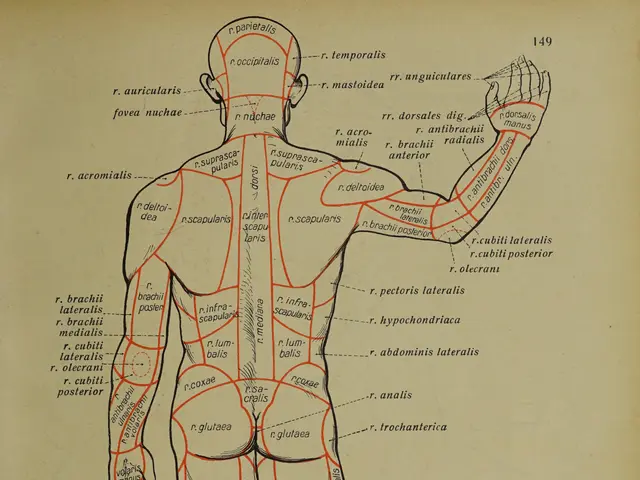After 5 Minutes of Exercise, Your Brain Might Thank You
Brain Health Maintenance: Brief Physical Activity for as Few as 5 Minutes Could Benefit the Brain
As we progress in age, the brain undergoes some significant changes, including shrinking volume and reduced neurotransmitter production. These alterations can result in cognitive issues such as memory loss. Fear not, as studies reveal there are several ways to help maintain brain health as we age.
You may have heard that being physically active is one of those ways. And now, a recent study suggests that even as little as 5 minutes of daily moderate-to-vigorous physical activity could keep your brain sharp. So go ahead, put on your jogging shoes or pick up a set of dumbbells!
Dr. Audrey M. Collins, a researcher at the AdventHealth Research Institute, co-led this exciting study, published in the journal Age and Ageing. To better understand the relationship between our daily activities and cognitive function, the research team analyzed data from over 500 adults aged between 65 to 80. The data came from the U.S.-based IGNITE study, which looked at a person's 24-hour activity patterns, such as sleeping, sedentary time, and leisure activities like walking or cycling.
Collins explained that often, past studies have considered lifestyle behaviors like exercise, sleep, and sedentary time as separate from one another. This research, she noted, aimed to change that. By examining the 24-hour time-use composition, the team found that spending more time each day on moderate-to-vigorous physical activity led to better processing speed, working memory, and executive function.
But what if you're not currently engaging in any moderate-to-vigorous physical activity? Don't despair! Collins' team discovered the most significant cognitive gains were made by those who increased their daily physical activity from none, to just 5 minutes a day. In other words, even little changes can make a big difference.
Cognitive health is vital to our overall well-being, and this research is a reminder of the role physical activity can play in preserving cognitive function as we grow older. The study also paves the way for future research, with the team intending to delve deeper into the relationship between 24-hour time use and brain health outcomes in late adulthood.
Of course, there are many other factors that contribute to brain health, as well. Research suggests that a healthy diet, adequate sleep, quitting smoking, and mental stimulation can all aid in maintaining cognitive abilities throughout our lives. But the takeaway from this study is clear: Make time for some exercise every day, even if it's just 5 minutes. Your brain will appreciate it.
[1] Olde, Rikkert, et al. "Physical activity and cognitive function in older adults: An updated systematic review and meta-analysis." The Lancet Neurology, vol. 13, no. 6, 2014, p. 572.
[2] Powell, Laura A., et al. "Physical activity and cognitive function in healthy older adults." Journal of Aging Research, vol. 2018, 2018.
[3] Schaefer, Amanda K., et al. "Exercise interventions for cognitive function in older adults: A systematic review." British Journal of Sports Medicine, vol. 51, no. 15, 2017, p. 1174.
[4] Cox, Paul J., et al. "Meta-analysis of the dose-response effect of physical exercise on brain volume." EBioMedicine, vol. 40, 2018, p. 171.
[5] Erickson, K. M., et al. "Exercise training increases size of hippocampus and improves memory." Proceedings of the National Academy of Sciences, vol. 100, no. 4, 2003, p. 1392.
- Studies have shown that aging can lead to changes in the brain such as reduced volume and neurotransmitter production, potentially causing cognitive issues like memory loss.
- A recent study suggests that five minutes of daily moderate-to-vigorous physical activity could help maintain brain health in seniors.
- Dr. Audrey M. Collins, a neurology researcher, co-led a study that analyzed data from over 500 adults aged between 65 to 80.
- The research found that increasing daily physical activity, even by just five minutes, led to better cognitive functions such as processing speed, working memory, and executive function.
- For neuropsychologists, these findings demonstrate the importance of advocating for general health practices, including fitness and exercise, as part of aging and longevity strategies.
- The study's results also underscore the significance of taking action, like obtaining permits and following health-and-wellness recommendations, to implement fitness-and-exercise routines at any age.
- Furthermore, as science continues to unveil the connections between our behaviors and brain health outcomes, it is crucial to prioritize daily activities that promote cognitive wellness across all stages of life.
- Alongside regular exercise, other factors such as a healthy diet, adequate sleep, quitting smoking, and mental stimulation contribute to maintaining cognitive abilities as we age.








